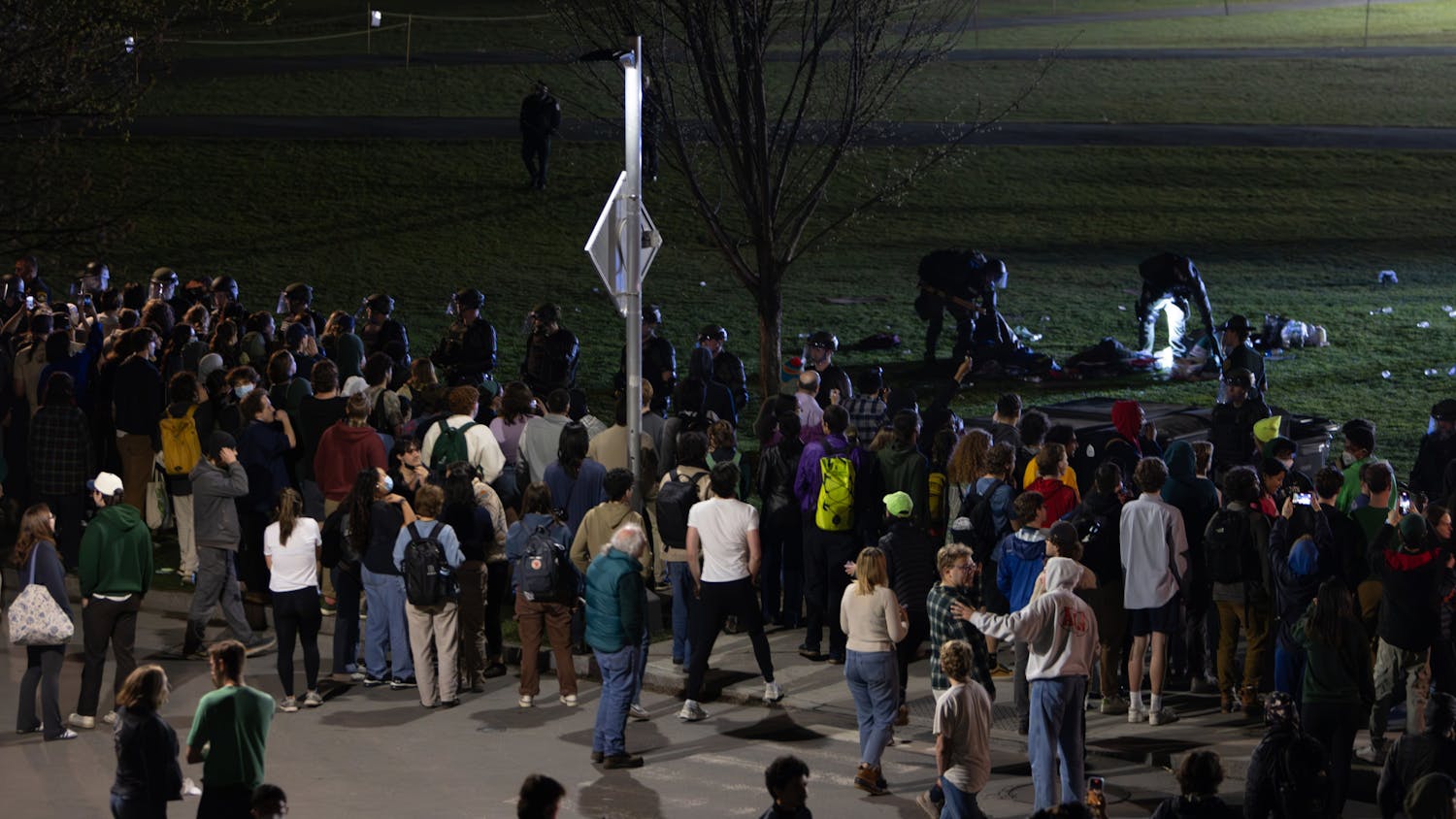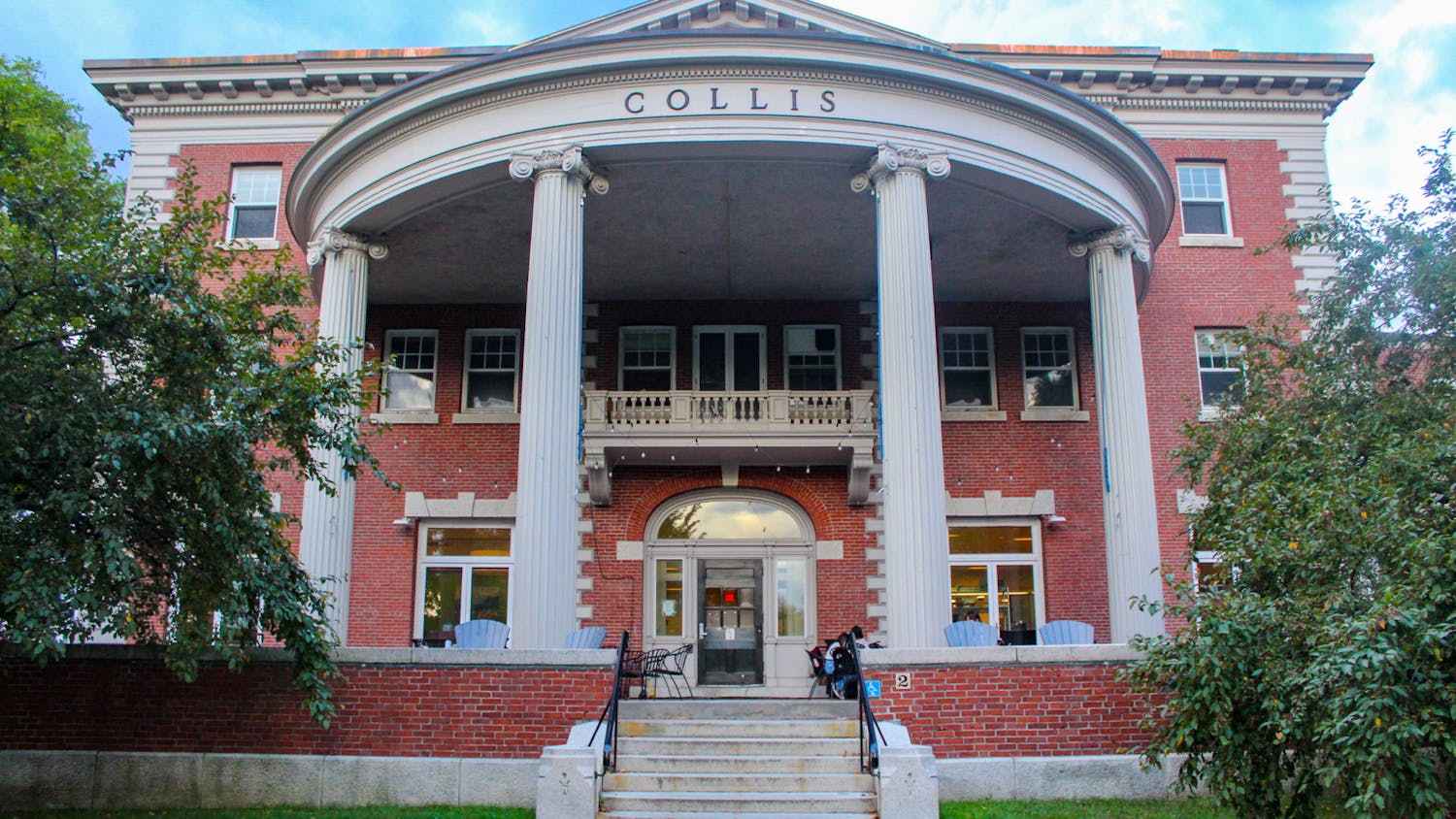In light of nationwide attention on suspected hazing practices at Dartmouth, a number of students across campus have criticized the administration's lack of communication about student issues. Many students interviewed by The Dartmouth said that members of the administration, and specifically Dean of the College Charlotte Johnson, express a willingness to address student concerns but fail to actualize this desire with visible intervention and accessibility.
While some students said that students themselves need to take the initiative in facilitating discussion and addressing campus issues, others felt the administration has not done enough to address campus concerns in the wake of hazing allegations and College President Jim Yong Kim's nomination for the World Bank presidency. Johnson emphasized her continued commitment to transparency and accessibility in an interview with The Dartmouth, noting various opportunities through which students have been and will be able to discuss concerns with her.
Student Body President Max Yoeli '12 said that the lack of vision and direct action to combat hazing taken by Kim and Johnson has "incredibly disappointed" students and left them "without outlets or direction."
"I think what most students would like to see is an immediate, interested, genuine reaction followed by action that speaks directly to the issue at its root, rather than solely taking into account considerations of image and weighing how any action would be perceived by those outside campus," Yoeli said. "I understand administrators have to balance competing demands from alumni, press, faculty and students, but addressing all those concerns and making substantive progress on student life issues don't have to be mutually exclusive. Thus far I think students have taken a backseat."
Students expressed frustration that the administration has yet to find a proper vehicle to foster student discourse on hazing.
"They could have done a better job bringing light to the issue, and that would increase transparency for students and let them talk about experiences if they're unsure if their experiences qualify as hazing," Dani Levin '12, former chair of the Student and Presidential Committee on Sexual Assault and former Sigma Delta sorority president, said. "There's no obvious forum for them to air their grievances where their words would have significance."
Johnson has reached out to various student organizations and met in small gatherings to discuss issues like hazing, she said in an interview with The Dartmouth. The members of Palaeopitus Senior Society, for example, are currently advising her on ways to increase transparency in communication.
One suggestion includes a moderated discussion to enable students to submit questions, with video responses from Johnson, she said.
Johnson who holds open office hours and said she aims to be accessible to students said that although few students have spoken to her about hazing, she is interested in "providing spaces for open and constructive dialogue." The administration has also supported forums on sexual assault and hazing, she said.
Johnson said she could not specify what types of forums the administration will create in the future.
"I'm talking with student advisors and my team to see how to better open channels of communication and better allow students a voice," she said. "I think it's helpful to know what students are thinking, and we can always strive to do better."
The Committee on Student Safety and Accountability will launch later this month to address sexual assault, hazing and alcohol abuse, she said.
Chris O'Connell '13, co-chair of the Inter-Community Council, said students feel distanced from the administration.
"I think it's still important to recognize that students, despite rhetoric around how open the administration is, still don't feel comfortable going to them with concerns and don't feel their concerns will be addressed," O'Connell said.
The attention on hazing has spurred conversations about how to effect substantive change on campus, but that dialogue ultimately needs to occur between students, according to President's Intern Jason Goodman '12.
"Even though this is extremely important for the College, this is the sort of battle that needs to be fought by the people involved," Goodman said. "It's a grassroots problem. It's not really been the administration's place to try and control by fiat the culture of Greek houses."
While transparency and the availability of administration-sponsored forums could increase, the most valuable conversations about hazing occur between students, according to Goodman.
"Students I've been speaking to have not been clamoring for more communication with the administration on this issue," he said.
Delayed responses from College administrators, often only in the form of campus-wide emails, have also played a role in alienating parts of the student body, according to interviewed students.
"Our lives are much more 24/7 than theirs, and I acknowledge and understand that when they issue statements, other people have to approve it and that takes time," O'Connell said. "But I think recently the response time has troubled students because it hasn't just been hours or days, it's been many days or a few weeks, and that indicates to people that the priority at this College is preserving its public image, and that doesn't bode well with students."
Johnson said a lack of the "spontaneous" messaging to which contemporary students are accustomed is not a sign of disengagement on the administration's part.
"We are concerned with being transparent and having open lines of communication," she said.
Will Conaway '13, Chi Gamma Epsilon fraternity president and Student Assembly's Alcohol Harm Reduction Committee chair, said he regularly receives emails which he sends to fellow fraternity members about forums from Greek Letter Organizations and Societies, the Office of Residential Life and diversity groups. Students should strive to be more "proactive" and fully utilize the resources available, he said.
"There's a want among students to talk about these things, and there's a want among the administration to have these forums be publicized," he said. "Sometimes the disconnect is more on our side than theirs, and we're sometimes unfair about our accusations about the administration not having these discussions going."
O'Connell, however, said that the administration has a greater responsibility in addressing these issues, as students may seek the opportunity to discuss issues without having concrete solutions.
"I believe that it's OK for students to identify a problem and not initially have a solution right off the bat," O'Connell said. "There could be increased student partnership in devising solutions, but the people whose job is to implement policy solutions are not students."
The ICC met with Provost Carol Folt and Johnson several times last fall to discuss administration support of various student communities, as well as faculty and staff recruitment and retention, and they plan to meet again in several weeks to consider other issues. O'Connell said ICC members' experience with the administration has been positive, but the current mechanism for collecting student feedback does not include many students on campus.
The general consensus is that most students are not being heard, according to O'Connell, who said some students have sensed that Johnson seems uninterested.
"For pervasive issues, there needs to be strong leadership, transparency and care," O'Connell said. "I think Dean Johnson is doing the right steps, but it comes across as very formulaic, and students don't perceive that those steps are genuine."
Some students and alumni noted the need for both discussion and tangible results.
"There must be ways to facilitate feedback and make sure it reaches the people who need to receive it," Levin said. "That we haven't seen new ones tells me that there is no desire to bring more attention to it or that it's bad press."
Duncan Hall '13, Greek Leadership Council moderator and former head of SPCSA, said the administration sometimes places too much responsibility on students to spearhead discussion efforts. While he has had positive experiences working with the President's Office and GLOS, other offices should attempt to improve their communication with students, he said.
"There should be some more effort from the Office of Student Life and [Associate Dean of the College for Campus Life] April Thompson to be proactive in addressing these issues," Hall said.
Danielle Dyer '81 Tu '89, president of the Alumni Council, said she was "heartened and impressed" by the College's response to the hazing controversy. Dyer praised Johnson and Kim for their dedication to reducing high-risk behaviors and for Kim's creation of the Committee on Student Safety and Accountability.
Leadership in establishing spaces for discussion does not fall to the administration alone, Dyer said.
"I think the administration has made their positions clear, but I think it'd be great for students to organize themselves into discussion groups," she said. "No one party should be waiting for the other to take the initiative."
Martin Lempres '84, president-elect of the Alumni Council, said that the College has done well to address complex issues but also needs to provide concrete results. Lempres said that alcohol initiatives like peer intervention programs and the Learning Collaborative on High-Risk Drinking, a partnership between 32 colleges started by Kim "need to take fruit."
"We have a right to be critical of the College and the administration if they don't translate that progress into tangible action," he said.
Hazing allegations have elicited "a nuanced and complicated response," with some arguing that the Greek system needs to be reformed and others upholding its merits, Goodman said.
"On the whole, I think students have taken this as an opportunity to look inside their own organizations and re-evaluate what's important to them." he said. "It's spurred conversation about what values we have and what tradition means."
Levin said she has seen increased discussion within Greek houses and student organizations like Palaeopitus.
Many Greek leaders are also engaging in "a reflective process about new member practices," she said.



